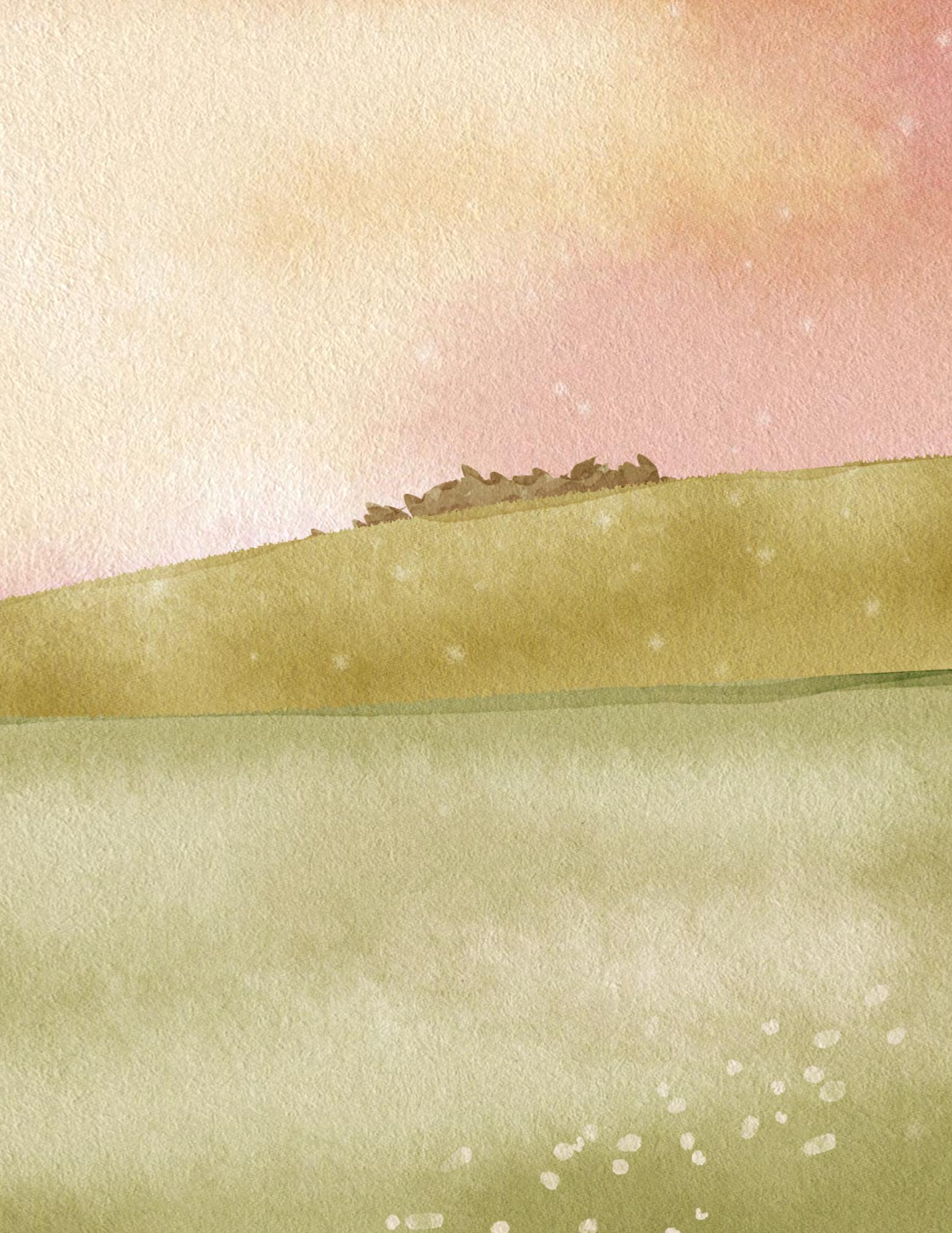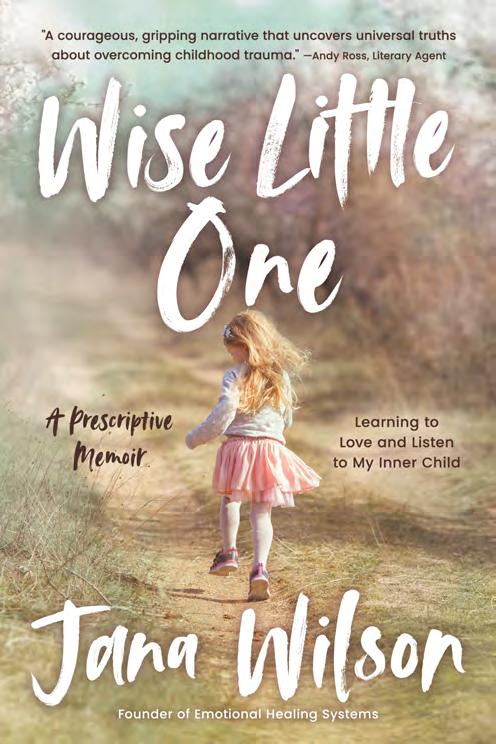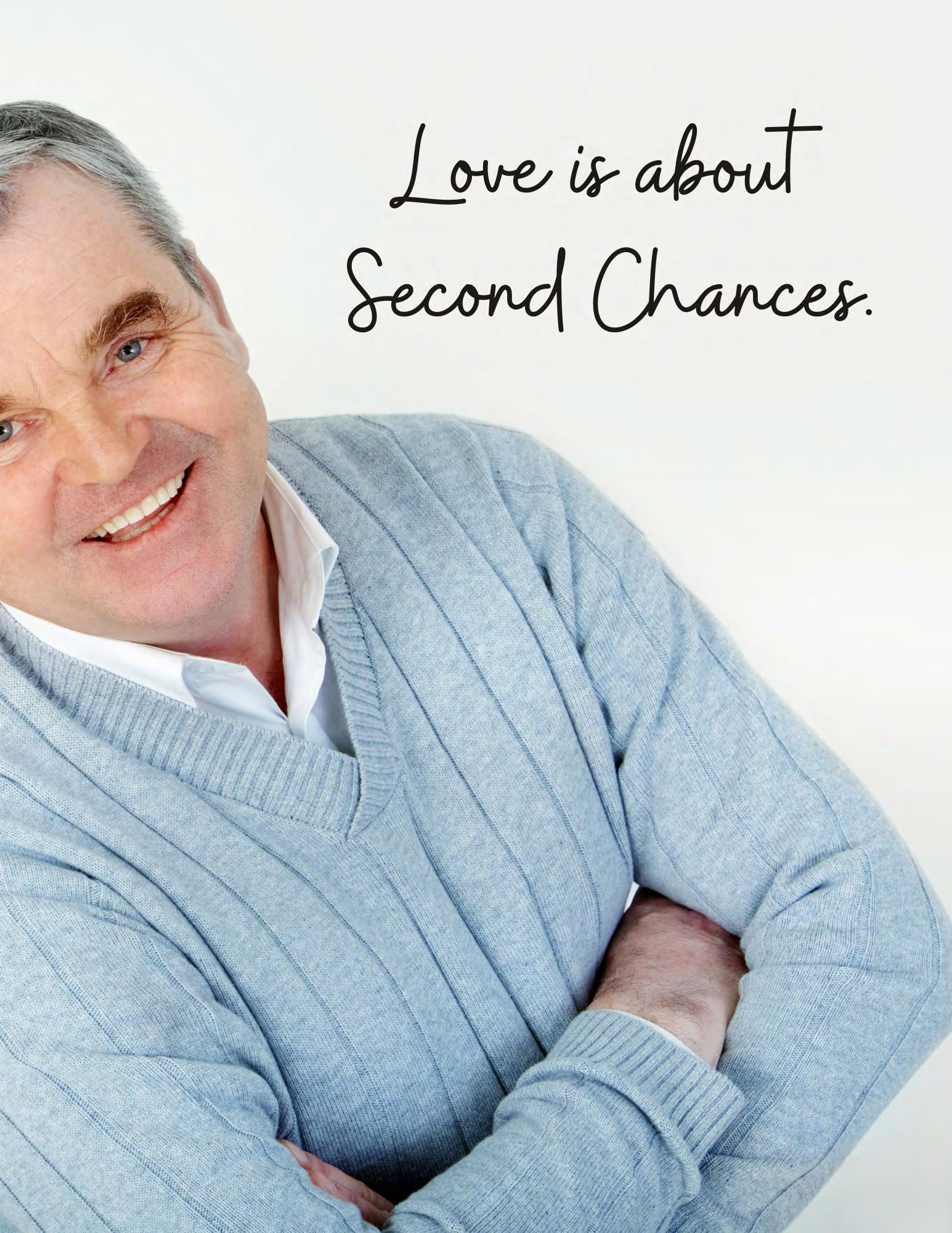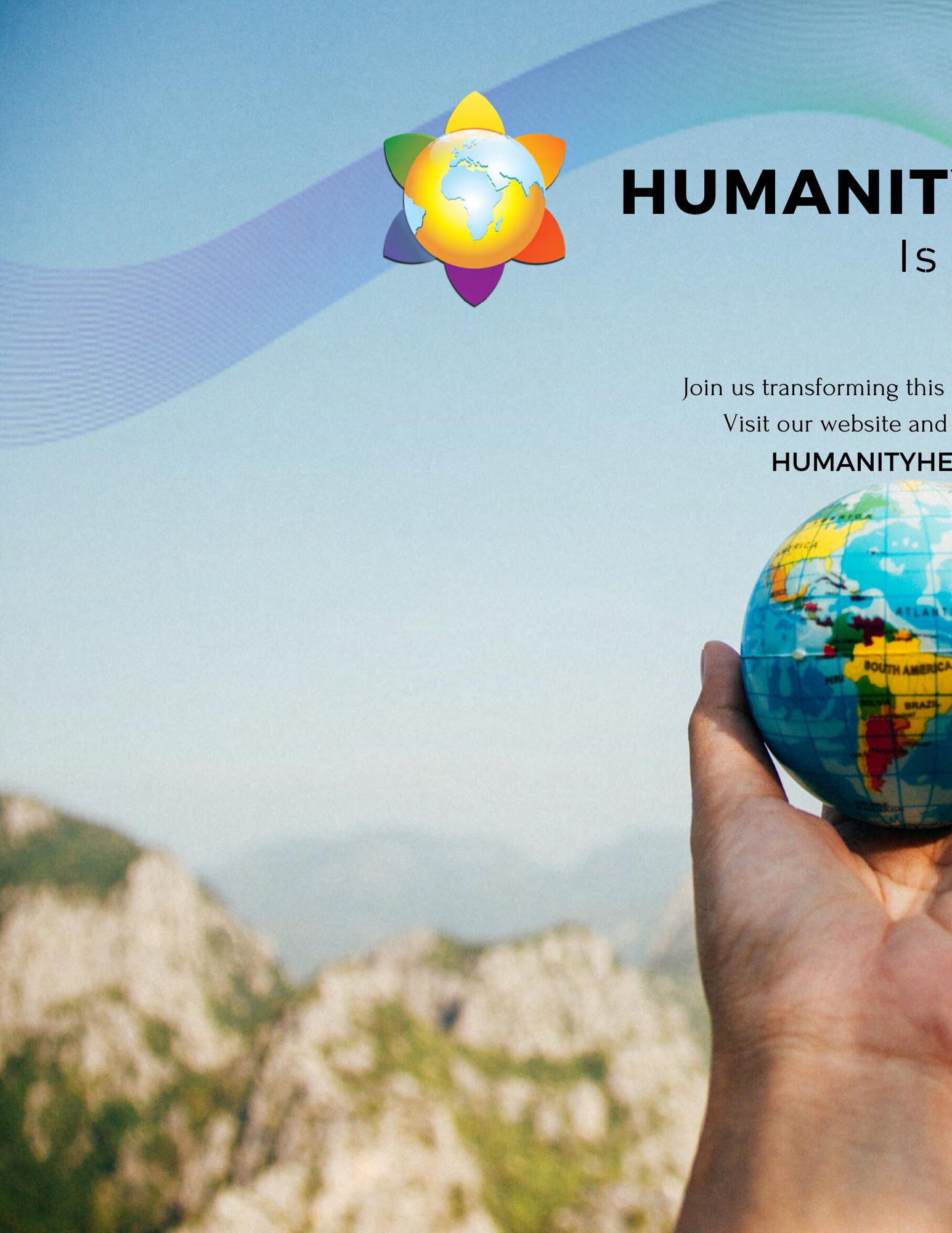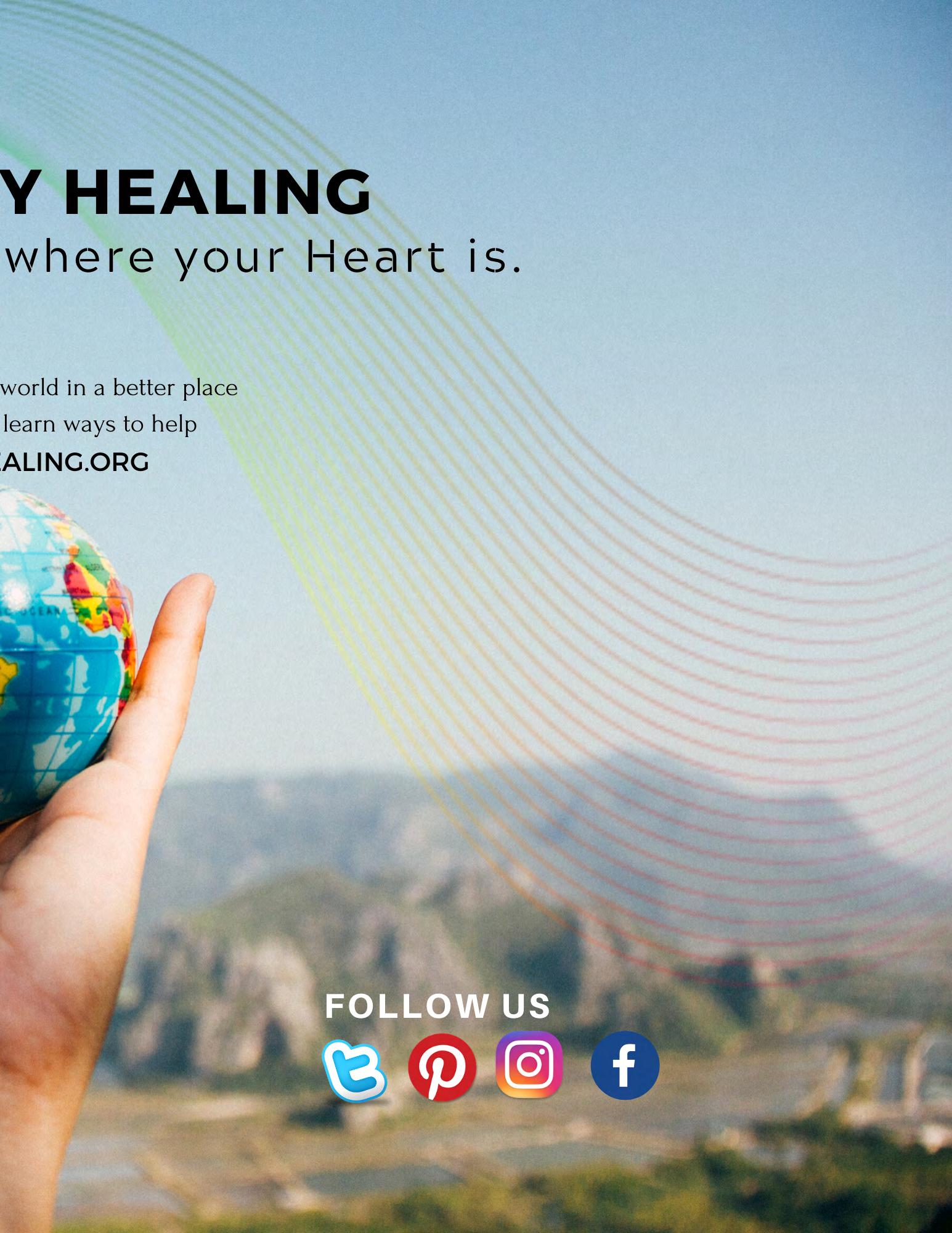






























































Yoga, Tantra & Enlightment
“WhenthetraditionassertsthatBuddhasdon’t sleep, it doesn’t mean they stay up all night doing physical activity. It means that ignorance has been completely removed, and theyremainforeverawake,orlucid,”
― Andrew Holecek, Dream Yoga: Illuminating Your Life Through Lucid Dreaming and the Tibetan Yogas of Sleep
Yoga and lucid dreaming may seem like unrelated practices.Still,uponcloserinspection,wefindboth involve heightening self-awareness, harnessing controloverone'sinternalprocesses,andexploring the deeper realms of consciousness. Each offers a different pathway for exploring the mind-body connection, providing potential for personal growth, self-discovery, and transformative experiences.
Yoga is known as an ancient Indian practice, a holistic approach to well-being, encompassing physical postures (asanas), breathing techniques (pranayama), meditation, and ethical principles. While the physical aspect of yoga helps improve strength, flexibility, and balance, the mindful componentfostersmentalclarity,stressrelief,anda deepersenseofself.

Meditative yoga and the practice of pratyahara (withdrawalofthesenses)oftenleadtoheightened inner awareness and can create a gateway to lucid dreaming. Pratyahara involves withdrawing attention from the external environment and focusinginward,helpingpractitionersenhancetheir ability to concentrate and observe their internal state, both of which are essential skills for lucid dreaming.
TheConnectionbetweenYogaandLucidDreaming:
In both yoga and lucid dreaming, the aim is to cultivate a deeper level of consciousness and selfawareness.
Within both modalities, they complementary avenues for exploring consciousness. In yoga, this heightened awareness is achieved through mindful movement, breath work, and meditation. Lucid dreaming it's achieved by recognizing and navigatingthedreamstateconsciously.
Tibetan Buddhism includes a practice known as DreamYoga,whichdirectlybridgesyogaandlucid dreaming.DreamYogaisintendedtotransformthe dream state into a spiritual practice. It involves a seriesofmeditativepracticesperformedduringthe dayandspecifictechniquesappliedduringsleepto promote lucidity. Once lucidity is achieved, practitionersusetheirdreamstoexplorethenature of the mind, dissolve the dream, and explore emptiness,amongotherpractices.

Combiningthesetwopracticescancreateaholistic approach to self-discovery, consciousness exploration,andpersonalgrowth.


As a long-time student of Buddhism, Andrew Holecek frequently presents this tradition from a contemporary perspective – blending the ancient wisdom of the East with modern knowledge from theWest.Drawingonyearsofintensivestudyand practice, he teaches about the opportunities that existinobstacles,helpingpeoplewithhardshipand pain,deathanddying,andproblemsinmeditation. Known as an expert on lucid dreaming and the Tibetan yoga of sleep and dream, he is an experienced guide for students drawn to these powerfulnocturnalpractices.
Editor In Chief , The Oneironaut’s Diary – Michael Bassey““Dreams are divine gems. Find and keep them safe.”
Johnson





ndrew Holecek is an author and spiritual teacher who offers talks, online courses and workshops in the United States and abroad.

As a long-time student of Buddhism, he frequently presents this tradition from a contemporary perspective –blending the ancient wisdom of the East with modern knowledge from the West. Drawing on years of intensive study and practice,
He teaches about the opportunities that exist in obstacles, helping people with hardship and pain, death and dying, and problems in meditation. Known as an expert on lucid dreaming and the Tibetan yoga's of sleep and dream, he is an experienced guide for students drawn to these powerful nocturnal practices.
Omtimes.com
Omtimes Magazine
Why do people meditate? According to the author, speaker, and humanitarian Andrew Holecek, the primary reason is that it reduces anxiety, improves sleep, declutters the mind, and helps people feel better. But Andrew asks, where does your meditation go when things go bad? Where is your spirituality when rock meets bone, as they say in Tibet, or when the crap hits the fan? Andrew Holecek has studied sleep, yoga, bardo yoga, and other traditional practices with living masters in India and Nepal.
He offers seminars internationally on meditation, lucid dreaming, and the art of Dying. His work has appeared in numerous periodicals, and his acclaimed books include Dreams of Light, the Profound Daytime Practice of Lucid Dreaming, Dream Yoga, the Tibetan Path of Awakening through lucid dreaming and Reverse Meditation, how to use your pain and most difficult emotions as the doorway to inner freedom in which he advocates that when things get hard, it's time to turn your practice on its head and put your meditation into reverse. What does that mean, and how can it help you step up for your evolution?
Sandie Sedgbeer: So, turn your practice on its head. I can imagine that the first response you get to those words of advice is often complete confusion. So, how can reversing our meditations help us?
Andrew Holecek: Well, oh my gosh, in so many ways. I mean, meditation, first of all, meditation is a kind of a catchall term, right? Multivalent term. It is a little bit like sports.

So when people talk about meditation these days, it says it is like sports. Well, I mean, there's like hundreds of jokes. Perhaps unknowingly, people usually think of meditation as fundamental mindfulness, which is fantastic. Mindfulness is an incredibly powerful practice.

But one of the things I'm working on these days, Sandy, is that as wonderful as mindfulness is, and it truly is, the legitimacy of the mindfulness revolution is amazing. Its powerful mindfulness sedates. It doesn't liberate.
And so there's so much more beyond mindfulness practices that transcend, but include mindfulness and the reverse meditations are in that family, and boy, can we run with that. It's an amazing little known practice set of practices, which I'm hoping to make more well known, where what we do is we reverse our relationship, we reverse our attitudes, especially to unwanted experiences, because usually when people think about meditation, they think about getting Zen or chilling out.
And when the world's on fire chilling out, it's a good thing. But, like you mentioned in the opening comments, where do you go when the crap does hit the fan? My experiences with standard practices like mindfulness are fantastic, but meditation tends to go out the window when things get really intense.
And so these practices are designed, especially in this age when there's so much divisiveness and contentionI just look at the world, right? I was inspired to bring these practices out of the slightly esoteric closet of the Tibetan Buddhist tradition.


My publishers agreed, saying, wow, this could be of some benefit to the world now. And I can get into specificities.
Like, why is the call reverse? What do you do? How do you get into them? Because, well, boy, once you get into them, I can tell you they're a game changer from decades of doing these practices.
Sandie Sedgbeer: Meditation is very challenging for an awful lot of people. I'm one of them, the monkey mind, et cetera. But I think if I understand this correctly, you are asking me and many others, when the crap hits the fan, we have to stick with it. Yeah. And that is just awful. I mean, that's like sitting on a pin, right?
Andrew Holecek: That's the reverse, right? Yes. Like, you want me to do what? Really? You want me to do what? Yeah. So that's one reason they're called reverse because it's like, wait a second. I thought meditation was like hanging out and restarting my mantra on top of the mountain with the wind blowing.


Hey, that's fine. I'm not dissing that at all. But what happens when it gets rainy and stormy, the hill's coming down, and you're getting spanked with things? And so that's where the stuff really comes into play. That's where it really kicks into gear.
And, as I playfully say, but it's so true, by putting your meditation into reverse, you can accelerate going forward. Because usually when we enter unwanted untoward difficult experiences, I've been speaking as a meditator for over 50 years now and as a clinician. I'm a retired dental surgeon.

And so I have spent decades in the pain business writing tens of thousands of prescriptions and having people come in with really raging acute level 10 pain.
I've also been involved in studies and neuroscience labs, in MRIs for entire weekends, because of my seeming proficiency and meditation; they're studying my brain and how I relate to pain.
So, I want to say that I'm not just simply talking about this stuff from meditative or philosophical arm sharing.
From a scientific and medical perspective, I'm talking about what it's like in the trenches and weeds.
And this is where I have some confidence with what I'm talking about because I've experienced it, personally on my own side, I've experienced it clinically, and I have some experience scientifically.
And because I teach this stuff, especially over the last couple of years when I was writing this book, I've been working with people going through these practices. And once you get past this little learning curve with it, that's the amazing thing about this particular set of practices. Maybe because of their intensity, they tend to incorporate more quickly than others, so it doesn't take a lot of practice before you can start to perform.
But again, so many different directions can take you with this because it's such a rich topic.

Sandie Sedgbeer: Well, I would like to know about these practices, but before we do that, I want to talk about pain. We all suffered pain. Some people suffer more than others and you say that when you get pain or stuff, you actually feel better. And you quote, an incident of yours in the book, reverse meditation where you were on the floor in agony one night and instead of going to the ER, you stayed with it and went through the pain to bliss. How do you convince someone to stick with it, to keep suffering, right? How do you do that?
Andrew Holecek: Yeah, this guy's a nutcase, right? This is why there is definitely some preparatory work. Because otherwise, exactly like you're saying, people are going to listen to this and they're going, are you like, you want me to do what? Are you kidding me? So, to actually get into these practices, they're considered somewhat advanced for all the reasons you're saying. It's like the opposite of what I want to do. And so, um, I don't want to be fast and presumptuous about what's involved to gain some confidence proficiency here.
Because it's a little bit like studying calculus. Calculus is meaningless if you don't have a little background and arithmetic and algebra.
So to really do this properly, the right view is in order, which is creating, and I do this with some rigor about the overarching view, literally it's called right view in Buddhism, where you establish this wonderful, legitimate view of sacred outlook, sacred world, that again, that in itself is a reverse view. It's a review that all the wisdom traditions radically proclaim that the world is not made of lifeless matter. The world is made of heart, mind, and spirit; it's divine, it's pure, it's basically good.
So right off the bat, the right view is a reverse view. And so, what I do to substantiate, it's like, what are the, what's the maximum extraordinary claims require extraordinary evidence. So I draw on all the wisdom traditions. I draw on the kabbalistic tradition from Judaism.
I draw on Christian mysticism, Islam, Hinduism, Buddhism, and all these vectors from all these amazing traditions; they're radically proclaimed.
Yes, the nature of whatever arises is in Dzogchen, probably most archetypally represented, perfectly pure. And so that itself it's two things:
It's a preparatory practice for the reverse meditations, and it's also the fruition. In other words, the more you do it, strengthened by this view, and the more you start to realize, wow, if I go directly into what I would normally flee from, there's something here. There's some purity here. So that's super important to understand. There has to be a right outlook, a right view, because otherwise, again, you're just not going to do it. Like this is nuts!
So, what happens is that there are two preparatory practices before actually entering the reverse meditations formally.
First is mindfulness: establishing a platform, establishing the ground of quiescence. Because the first thing that happens when we hurt is we want out, we are just going to FedEx away from this pain.
And so the first thing we need to do is to develop some level of stasis stability, quiescence, where we can at least hold our seat. And then the second practice, that's, that's also critically important. And this is such a beautiful, powerful practice of open awareness. The ability for the mind and heart to open, to expand the narrative, is it transcends but includes mindfulness.
So it uses mindfulness as a platform. And with open awareness, you're opening your heart and mind in a kind of incubator, a formal meditation practice session to establish a more radical acceptance of whatever rises in your experience. And then, with some proficiency, you don't have to master it. Still, as the mind and heart open and you have a greater ability to say yes to what's arising, what happens then with the reverse meditations? We voluntarily titrate.
In other words, you can do it, manage the degree like you bite your lip or dig your fingernail into your thumb, and then you start to go through the four stages. And we can go through all four of these. These are beautiful. And then, I could also go back and say a little bit more about how I applied this. Not only some 20 years ago when I had my kidney
stone experience lying on the floor, but Sandy, I was in the ER, I was just; two days ago I was in emergency surgery because of acute sepsis about to go into a septic shock because of another kidney stone, severe raging pain.
I mean, it was bad. And I can tell you how I, it, because I've been doing this for so long, I wasn't freaked out once the entire time the doctors are going in there and they go, do you realize how sick you are?
Andrew Holecek: I'll pause for a second because we can take this into the four stages of reverse meditation. But there's a classic adage in the tantric tradition, and these practices fit within the tantra rubric. And you could say in, in the West alchemy, where the practice in both its traditions is transformed, led into gold, in this case, pain, suffering, or poisoned into medicine. And so, they are tantra and spirit. And one of the things that characterize tantra, a wonderful maxim, is that the preliminaries are more important than the main practice.


And so that's why there's a grant, there's an on-ramp. You have to do the preparations because otherwise, exactly on first look, when you're reading this, or somebody else is hearing about it, they're going like, this is nuts.
Well, maybe a first glance, it's nuts. But if you want to radically and profoundly alter your relationship to any wanted experience, this stuff is about nuts. This stuff has tremendous traction and applicability to whatever happens. So, we can, and I can run in any of these particular directions.
Sandie Sedgbeer: So, we have to shift our perceptions first and foremost of all of this. Uh, and get rid of decades, if not eons, of conditioning.
Andrew Holecek: Oh, totally. Yeah. And so, the biggest conditioning I talk about extensively in the book is the relationship of contraction to pain. Yes. Because contraction is what I invite anybody reading this, please don't take what I'm saying at face value.
Check it out, kick the tires, and test it against your experience. Whenever you have unwanted experiences, especially, we can say archetypally, pain, we can say, arguably, that's the most unwanted all experiences. Take a look at your experience.
Every time I feel it, almost, almost instantaneously, what do I do? I contract. And I really like this notion of contraction because not only is it a description of the experience, it's all highly effective. In other words, I can feel my contractions, right?
Sandie Sedgbeer: Well, let me ask you a question that shouldn't be too difficult, and it does relate to what you've been saying about how few people are right now. Let's talk about the Kali Yuga, or "the age of darkness," "the age of vice and misery," or "the age of quarrel and hypocrisy," which you say is currently underway. The dark virus that's infecting us. And this, I think, is what is creating so much anxiety for people that anything else is impossible.

Andrew Holecek: Yeah, absolutely. It's a really good, good one. So Kali Yoga, the term comes from the Hindu tradition, but the Buddhists talk about it as Mappo. I mean, it's been predicted by many world wisdom traditions forever. And this is my rendering of it. In my estimation, one thing that makes the Dark Ages so dark is its insidious onset. It's an insidious manifestation and an insidious continuous practice.
And by this, what I mean is I argue that the Kali Yuga, the Dark Age, started with the beginning of artificial light because artificial light allowed us for the first time to violate the natural curfew of the night, which invites this interiority. That's where evolution takes place. To summarize, Teilhard de Chardin's evolution hasn't stopped. It's only moved indoors at the heart and mind levels.
And so, with all our weapons of mass distraction, right? Our phones, computers, tablets, and screens screen us away from reality. I mean, look at what's happening with TikTok and all these addictive tools, social media, and cyber skills and all that kind of stuff. Every time people reach for their phones and every time it's getting worse and worse and faster and faster, look at the airports. We're all like the proverbial frog in, in heated water. We're boiling ourselves alive because it's happening so fast. We don't even know it. And so I argue that the colleague Yuga is principally brought about these days by what makes it so dark is its insidious instantiation.
People don't notice things like global warming or ecology every time we're distracted.
The world is so asleep because we're so "distracted" and pulled away from reality. And so that, to me, is the single estimation. All we see in the world are epiphenomenal instances of these fundamental moments of distraction. Again, you can reduce these into healthy ways to these fundamental ingredients of the shallows.
Everything that's taking place with the raging dark sides of these technologies they're fundamentally neutral.
Technology is not the issue. It's like pain. The relationship is the issue. And that, to me, is where the Kali Yuga really comes in. So first of all, bringing it into the light of consciousness, working with the impulsivity of addiction, working with all these tendencies to be distracted, that's the first start.
So, the conversion of distraction gives us a good sign of the mindfulness revolution. So interesting from the 50,000-foot view, conversion with that is a possible solution. So, it's not how hopeless. It's just a matter of people waking up in time, right? That's the big question.
Sandie Sedgbeer: Andrew's books, Dreams of Light, The Profound Daytime Practice of Lucid Dreaming, and Reverse Meditation, published by Sounds True. Reverse Meditation will hit the Book stores in July, but it's available for pre-order now on Amazon. You can learn more about Andrew's work @ andrewholecek.com and listen to his podcasts at Edge of Mind podcast.com.




Innovative new approaches to Healing as well as holistic methods for dealing with health issues and personal growth


If you suffer from depression, you know how debilitating the condition can be. From feeling sad to experiencing major depressive episodes, not much is enjoyable about the constant battle
between your mind and hormones. But Ketamine could soon offer a groundbreaking alternative for those suffering from this condition, as it’s been proven to offer relief in some cases.

Today we’ll be exploring five reasons why Ketamine could end up being a better option for depression than current antidepressants on the market today.

Antidepressant drugs are made up of relatively ‘unnatural’ chemicals. While some chemicals can be absorbed more effectively by the body, others have been proven to be even more toxic, especially at high doses.
Ketamine is a naturally occurring substance. This has various advantages for users, including the fact that it doesn’t come with the same array of risks. In fact, it’s been found to be up to a hundred times less toxic than Prozac at the same dose!
Antidepressants are limited by the fact that they’re ‘unnatural’. This can pose problems for some users, as
you will find that it becomes hard to avoid side effects.
Ketamine is different in this respect, as it doesn’t limit the body. In addition, since it is naturally occurring, its effect isn’t limited to certain individuals who may not be able to tolerate other antidepressants.
When it comes to treating depression, antidepressants have a very long working time. So while the impact of Ketamine is very apparent
in most people, you have a short window of opportunity to make the most of it.
The main advantage of using Ketamine for depression is that people can use this treatment within a matter of hours, which means that you can get the most out of it as soon as possible.
Another problem associated with antidepressants is that they can sometimes come with numerous negative side effects. For example,

you can find that your mood can dip as you continue to use them.

A quality ketamine treatment, however, tends to have virtually no ‘getting off period. This means that when you first start using it for depression, you will experience an instant response, which will then become more pronounced with time.
Quality treatment with Ketamine can also be very effective. This will make it a lot more appealing to patients.
If you have an option that offers
immediate results, you may be more likely to try it out. Just like antibiotics and many other pharmaceuticals, some individuals may find that a quality ketamine solution offers the best results for depression.
In conclusion, Ketamine offers a whole host of benefits for patients who suffer from depression. In addition, it offers some unique advantages that are not associated with current antidepressant treatments, which is why its use could be beneficial for many people.


THE AYURVEDA RITUAL FOR INCREASING ENERGY
By Akshata SheelvantYes, it's hard to believe, isn't it? But practice just this ONE daily ritual in your life, and you will be amazed to see the long list of benefits Ayurveda bestows on you!
"Ushapan," water therapy is done first thing in the morning and can be the start of increased energy— but one must embrace it daily. Maintaining your ideal weight to your body constitution, strong immunity,

clarity of mind, increased energy, and focus—who doesn't want this to be the "new normal" in our everyday life?
All these benefits can become a reality by incorporating this simple and inexpensive ritual with no burden on the pocket. The rich and the poor can take advantage of nature's gifted remedy from Ayurveda. Unfortunately, this ritual is so simple that one tends to ignore its powerful benefits—drinking one liter of plain water!
If you research Ayurveda on water, you will get tons of information written on it. For example, when to drink, how to drink, how much to drink, and when not to drink (this will be my next post); the more you dive deep into understanding this life nectar, a/k/a water, you will be amazed by the wisdom of the Indian sages poured down into Ayurvedic texts called sutras
where a specific teaching or a ritual is woven together to form a specific guideline to follow.
The custom of drinking water first thing in the morning is highly regarded in Ayurveda. It is called "Ushapan," which is water therapy done first thing in the morning. The ideal time to do ushapan is before sunrise, immediately after waking up, and before brushing your teeth. Yes, brushing your teeth is considered very beneficial, according to Ayurveda, as the stored-up saliva in the mouth has strong medicinal properties.
Confession: To be honest, I personally have a hard time drinking water before brushing my teeth, and I have tried a few times, but somehow am not able to stick to it. But eventually, yes, I am drinking water after brushing my teeth every day.
The word sutra comes from the Sanskrit language, basically ancient Indian texts from the Vedic literature,
I was first introduced to the sutra of drinking one liter of water daily in Kerala, India, which I call this state the 'Mecca' for Ayurveda. Then,
one of the renowned Ayurvedic physicians, Dr. Franklin, convinced me to incorporate this into my daily activity.
Until now, I used to drink about two cups of warm water, mainly lime juice, mineral salt, and natural sweetener, first thing in the morning. I had good results with this, but I must tell you switching to drinking one liter of water daily has made a huge difference. Below is where I share my observations after drinking one liter of hot water daily for a few months. I plan to continue this ritual as a lifestyle, as there is enough
evidence from trying it out on myself that it would be foolish not to follow this simple daily habit.
Following the Ayurvedic guidelines on Ushapan, here is how to drink one liter of water on a daily basis:

• Heat approximately five (5) cups of water on a stovetop. Microwave is discouraged.
According to U.S. standards, approximately 4 1/2 cups make up
one liter of water. Ayurveda strongly encourages heating the water on a stovetop as it heats up evenly, unlike in a microwave. This gives uniform heat when you drink, and you will also notice the water heated on a stovetop lasts warmer for a longer period of time.

You can also store one liter of water in advance (overnight) in a copper vessel to make the water more recharged and easily absorbed by the body.
• Drink about 4 1/2 cups of water. The temp is hot--comfortably hot, not burning hot.
Depending on your body dosha, it's important to drink hot water, lukewarm, or room temperature. Ayurveda never recommends drinking cold water. This Ushapan ritual is like giving a steam-clean to our body cells when we do this first thing in the morning and also kindles the digestive fire to keep us energetic and alert throughout the day!
During the winter months, you could drink hot water (even if you are pitta) and switch to roomtemperature water during the hot summer months. Vata body
types can drink it warm, and Kapha body types can drink to bearable hot temperatures.
If you are pitta-dominant dosha drinking bearable hot water and see any imbalance in pitta like breakouts or rashes, switch to lukewarm water. I am high pitta, and this winter season, I have been drinking bearable hot water, which seems to work well with my body. But I don't drink hot water throughout the day. It is only the one-liter first thing in the
morning. Throughout the day, I stick to room temp or lukewarm.
• On e liter of plain water, nothing added, no lemon or lime or salt, just nothing.
This was very much stressed by the Ayurvedic physician I met in Kerala, and there is a good reason for it.
According to Ayurveda, water has a subtle genetic pattern that has the power to detox, hydrate, regulate, eliminate, and bring our bodies

back to nature's rhythm. So to make this process work efficiently, it is important we drink plain water with nothing added to it.
Some of my clients add mineral drops to their water, as today's modern world, especially our reverseosmosis water, takes off all the vital minerals to make our water safe to drink. So I would suggest you add the mineral drops to the water you drink later in the day and not to this water you have in the morning.
• Th e best way to drink is to drink sips of water; never gulp it down.
The wisdom of Ayurveda also tells us what is the right way to drink water. Taking small sips and enjoying the taste of water in the mouth is the right way to drink it. To make it more beneficial, drink this sitting in a sukhasana (cross-legged, seated position).
• Do n ot eat anything for at least 30 to 40 minutes.

This is very important to make sure we don't eat anything for at least 30 minutes after drinking one liter of water. This time of 30-40 minutes is what the body takes to steam-clean our body cells, hydrate and energize the cells, and start removing all the ama (toxins) accumulated in the body.
According to Ayurveda, it takes about 38 minutes for a healthy individual to urinate when we drink hot/lukewarm water on an empty stomach first thing in the morning. In my experience, after drinking about 4 to 4 1/2 cups of water,

I urinate after 35 minutes, and my second and third one is between 20 and 30 minutes apart.
If you practice eating healthy and nutritious food to your body type, you will generally empty your bowels immediately after waking up. However, if this is not the case with you, then making this habit of drinking one liter of warm/lukewarm water will build enough pressure for you to empty the bowels before you have your first meal of the day, breakfast.
I take my breakfast after one hour of drinking one liter of water. I know it's not practical for everyone, so at least give a gap of 30 minutes before you eat your first meal.

You have to incorporate Ushapan as a daily ritual to reap all the benefits. The results are inevitable; the only thing Ayurveda begs from you is patience and consistency.
Source: jeevalifestyle.com/oneayurvedic-ritual-resulting-in-weightloss-increased-energy-clarity-of-mind
Akshata Sheelvant brings together the best of East and West in her presentations on living a healthy, wholesome life. Her forte is crafting multicuisine dishes by perfectly blending them with seasonal and dosha-specific Ayurvedic herbs and spices.
Jeeva Lifestyle is a platform showcasing her efforts to bring this balance to her life.
For more: jeevalifestyle.com
To perceive reality from a different perspective is to open oneself to the wonders and unlimited wealth of creation. Simply Spiritual offers the opportunity to visit new places, new methods, and different ways to perceive the vast human knowledge of our Universe.


 By Cathedral of the Soul
By Cathedral of the Soul
We, as human beings, are always concerned with cleanliness: we take baths daily, wash our clothes, and clean our houses, cars, and personal belongings, as we know how dirt can be harmful to our
physical bodies. But unfortunately, it is also harmful to our spiritual body, and that's why we need to periodically do emotional cleansing to ward off everything that is negative and disrupts our harmony. See how to perform a spiritual cleansing step by step.
Due to a lack of understanding of the importance of spiritual cleansing, many people carry negative loads for a long period and do not know how to get rid of them. Shadows take advantage of vulnerable people to cause attitudes and moments of aggression, sudden sadness, discouragement, lack of confidence, and lack of willpower. It is possible to free oneself from these negative loads by renewing your energies with spiritual cleansing.
Do not doubt the power of deep breathing. It is real. Deep breaths calm our physical and spiritual bodies, causing a sensation of relaxation. To do spiritual cleansing, take about 20 deep breaths very slowly. Remember to breathe correctly: inhale through your nose and feel your abdomen inflate, not your lungs. Then exhale through your nose. The idea is that the time of inhalation and exhalation be similar.
You should create a spiritual connection with the divine entity,
be it God, a saint, angels, orishas, or the deity you believe in, regardless of your belief. Imagine a very long tunnel of light, and the light that bathes this tunnel should be that connected to the deity. For God, usually, one imagines a golden tunnel. For angels, a blue tunnel. For Mary, a white tunnel, or the color that, brings you peace and connects you to this deity. You should imagine yourself calmly traversing this tunnel until you meet the divine. The time for this stage varies from person to person. You can start with 20 or 30

seconds and extend it as this stage brings you peace.
With an established channel, it's time to specify the need for your spiritual cleansing. You can start this stage with a prayer of your choice or a spontaneous prayer to that deity you are connecting with. Then, make clear your need for emotional cleansing and spiritual renewal, and ask to free yourself from all negative loads,

envy, greed, and anger in your life. Remember to be very concentrated and focused on this desire and positively make this request for cleansing.
Gratitude is a special feeling and essential to spiritual cleansing. Enhance this feeling within you. Feel grateful for everything you have, everything you are, everything you
have achieved, and the ability to go after what you want to achieve. Thank the gift of life. Thank the people who love you and whom you love.
Important: During the spiritual cleansing, your thoughts may deviate, and you may lose focus when you remember something or some subject unrelated to energy renewal. Try to ignore this thought, cancel it from your head during the cleansing period, and return focus to where it was before the distraction. Over

time, you will get used to maintaining concentration and not getting distracted.
At the end of your cleansing, establish a routine to repeat frequently and keep your energy always positive and your aura always clean. Start slowly when you feel the need, and gradually incorporate new cleansing into your daily life until it becomes a daily habit, which will only take 5 minutes of your day and will bring positive results for your well-being.


 By Connie Zweig, Ph.D.
By Connie Zweig, Ph.D.
We begin the spiritual journey in innocence, filled with longing to be saved, awakened, healed, or simply to belong. We may find a
cherished teacher, participate in a community, and engage in religious rituals or spiritual practice. We may enjoy a sense of membership and moments of deep fulfillment, even rapture. We may experience ecstatic
altered states of consciousness or simply a quieter mind and more compassionate heart.
But, at some point, we may meet the shadow of spiritual authority, suffering blatant emotional or sexual abuse. Or we may feel the consequences of a series of small, insidious transgressions. Or we may uncover a coercive group dynamic that becomes intolerable. Regardless of the specifics, we come to see through the image of an idealized priest or teacher to a dark shadow or

human limitation, and our projection rattles. If the disappointment is deep, if the disillusionment is shattering, we enter the night sea journey, the via negativa, or way of darkness.
In the Christian mythos, this is the time of the cross. As we read in Mark 15:34: Jesus cried out in a loud voice, “My God, my God, why have you forsaken me?”
At first, we may try to deny what we see in others. One disciple of a swami accused of abuse explained,
“If I believed such stories, I would disbelieve my whole life. I have no room for such thoughts. I might doubt my own perception. I might doubt my own eyes. But I cannot doubt that strength which has given me everything.”
In a different scenario, we deny our own shadows, those unconscious feelings, and beliefs that are deemed unacceptable by our teachers and communities. But at some point, those hidden thoughts and feelings—a cynical, gnawing doubt; an intractable, inexplicable depression; a persistent, destructive habit—erupt into consciousness.

Then one day, we admit to ourselves that, despite our faith in a church or a teacher’s promises, diligence in attendance, or practices, we still struggle with our own darkness. A spiritual life can’t save us from suffering.
One man told me, “The more I meditated by day, the more I drank at night. At first, I didn’t think anything of it because my parents, brother, and teacher drank too. Taking it for granted, the drinking became invisible. Then someone pointed out that I couldn’t get through an evening without drinking. Slowly, I began to realize that I was an alcoholic. And my
teacher and my practices colluded with my problem.. .
To sum up, we may meet a teacher’s shadow, we may meet our own shadow, or we may suffer disillusionment with spiritual beliefs or practices. In any case, our dreams of transcendence and communion fade. We lose faith and fall from grace. We feel forsaken, even by a god.

With the fall, some believers turn away from god, becoming bitter disbelievers who feel confused and disoriented with community fellowship and doctrine guidance. Others retrench against the threat
of loss and defend the fortress of belief with louder right-andwrong thinking. They attempt to ascend again, denying the meaning hidden in the fall. They rationalize their beliefs, excuse their abusive experiences at the hands of others, or trade-in their spiritual props for another set, climbing back toward the heavens of naivete. Still, others grab for the brass ring of a materialistic life. . . .Spiritual abuse may be covert, such as cultivating fear or shame, or overt: money, power, and sexual shadows in religious teachers may lead to outright coercion or molestation. One clear example can be seen in the
international scandal of sexual abuse by Catholic clergy. Although there are clear distinctions to be made between child survivors of abuse and adult survivors, there are many commonalities as well. The child’s innocent projection of greatness, even godliness, onto the priest is analogous to the adult’s projection onto a spiritual teacher. The incapacity to give consent is analogous due to the power dynamic. The demand to keep the secret repeats the pattern. And the consequences for the mind-body of the survivor are the same: PTSD, anxiety, depression, and profound loss of faith. . .
The litany of allegations in this chapter is not complete. The epidemic of abuse by teachers knows no denominational boundaries. It’s not rooted in dogma or belief; it emerges from the deep recesses of the human shadow regardless of a leader’s beliefs or spiritual commitments. And meeting the shadow on the spiritual path—your own or someone else’s—can be a life-changing event, a turning point from the blind trust of another to a more authentic self-trust, from naivete to maturity.
The intention of adding shadow awareness to our search for awakening

is not to negate the profound, meaningful, and even ecstatic gifts of our teachers and communities. We don’t want to deny the light any more than we want to deny the shadow. Rather, the intention is to learn to hold both, the full reality of our spiritual lives—the dance of darkness and light on the path. . . .

A fortunate few find the narrow path through the darkness and undergo an authentic initiation. With spiritual shadow work, we can travel from spiritual innocence through the dark descent toward a new level of consciousness – spiritual maturity.
We evolve from dependency on a spiritual parent through meeting the shadow toward spiritual adulthood.
About the Author: Connie Zweig, Ph.D. , a retired psychotherapist and former executive editor at Jeremy P. Tarcher Publishing, is co-author of Meeting the Shadow and Romancing the Shadow and author of the bestseller The Inner Work of Age: Shifting from Role to Soul and a novel, A Moth to the Flame: The Life of the Sufi Poet Rumi. She has been practicing and teaching meditation for more than 50 years. conniezweig.com




 By Rizwan Virk
By Rizwan Virk
From science, then, if it must be let so, man learn the philosophic truth that there is no material universe; its warp and woof is maya, illusion. Its mirages of reality all break down under analysis.
– Yogananda
Know all things to be like this: A mirage, a cloud castle, a dream, an apparition, without essence, but with qualities that can be seen. – Buddha, The Diamond Sutra
Throughout the centuries, mystics of all religions have effectively utilized similar metaphors to convey that the physical world around us is not the real world, and Yogananda was no different. Their goal in doing this is to try to detach us from our 'overattachment' to the triumphs and tragedies that we experience on a daily basis. These metaphors compare physical reality to a dream, a stage play, and, starting in the twentieth century, a film (via Yogananda).
I have tried to pick up the same thread in my recent books, using an updated metaphor that might seem like a departure from what the mystics of yore have said but isn't. This is the metaphor of the world being like an interactive multiplayer video game, a computer simulation. Yogananda himself upgraded the metaphors of his predecessors by incorporating references to the latest twentiethcentury technologies to make them appropriate and accessible for modern
men and women. In this book, I'd like to do the same thing in the twentyfirst century.
When we dream, we think that the dream-world is the real world. Think about the recent dreams you have had. Have you had a dream that involved less-than-ideal circumstances and woken up breathing a sigh of relief, thinking, 'Wow, I'm glad that was just a dream!'?
The dream metaphor is one that has been used for thousands of years. Yogananda himself used it to describe not only the illusory nature of the world but also the doors of entry into and out of this incarnation. 'Birth and death are doors through which you pass from one dream to another.' 2
Many sects of Buddhism consider the dream metaphor central to their philosophical positioning. When a woman asked the erstwhile prince Siddhartha, shortly after his enlightenment, what he was, he used a term drawn from his native language, Pali: 'Buddha'. Though this is often translated today as 'enlightened', the literal meaning
of the word is 'awakened', based on the Sanskrit root word 'budh', which means 'to be awake' or 'to become aware'.
Common sense tells us that if someone can 'awaken', then they (and the rest of us) must be asleep. The metaphor of dreams has been a staple of the Buddhist worldview since the very beginning of the religion, including the Tibetan practice of dream yoga, one of the six yogas of Naropa.
Even the Quran hints at this idea that the physical world is only a distraction,
a pastime, an amusement, and in various translations, a kind of game: 'This Life of the world is but a pastime and a game. Lo! the home of the Hereafter—that is Life, if they but knew.' 4
Over years, many have used the metaphor of the stage play, including the vedas, describing the world as the lila, or the play of the gods, and Shakespeare in his famous line the world's a stage and the men and women merely players. In the

twentieth century, our advanced understanding of Light and motion made it possible to tell stories in a new, engrossing, realistic way: the art of motion pictures.

An illusion is defined as something that looks real but is not. The ideas of Light and vision, of what we can and cannot see, are intrinsically linked to the concept of the illusion, particularly a carefully crafted illusion (maya) that is put on for us to lose ourselves in.
Yogananda himself used this updated 'modern' metaphor of the physical world being like a motion picture.
Unfortunately, this metaphor wasn't available during Shakespeare's era or in the time of the Vedas, or they might have used it too!
The metaphor came to Yogananda through a rather disturbing and interesting vision. In 1915, shortly after being ordained 'Swami Yogananda' by his guru, he had a peculiar but illuminating vision while meditating. That was a bloody year in Europe, with the Great War that had erupted the previous year still going strong. The scale of suffering caused by that war had never been seen before, partly because our technological capacity
for destruction had reached new levels, with the advent of machine guns and automated artillery that could gun down many men in a short period of time.
In Yogananda's engrossing vision, he was in the middle of a naval battle when his ship was blown up, and he jumped into the sea to save himself. He was then struck by a bullet in his chest and it seemed to him that he was in the process of dying. Suddenly, he found himself back in India, meditating in the middle of a room in Calcutta, in hysterical tears after his
vision of the near-death experience. He wondered: was he dead or alive?
A dazzling play of Light filled the whole horizon. A soft rumbling vibration formed itself into words:

'What has Life or death to do with Light? In the image of My Light I have made you. The relativities of Life and death belong to the cosmic dream. Behold your dreamless being! Awake, my child, awake!' 5
Later, he entered a cinema to see newsreels of World War I and, upon
seeing the horrific devastation, asked, 'Lord … why dost Thou permit such suffering?' The answer not only gave him a new way of looking at the world but also a new understanding of the concept of maya, which he had read about but now intuitively understood by seeing the actual European battlefields and the many dead:
'Look intently!' A gentle voice spoke to my inner consciousness. 'You will see that these scenes now being enacted in France are nothing but a play of chiaroscuro. They are the

cosmic motion picture, as real and as unreal as the theater newsreel you have just seen, a play within a play.' 6
The voice in Yogananda's vision went on to tell him: 'Creation is light and shadow both, else no picture is possible.' The voice went on to make the point that, in a motion picture, pain and tragedy seem real, but that a man or woman no more dies than an actor who portrays death in a movie scene is actually dead. Ceaseless joy, Yogananda writes, is not the state of this world.
This idea of the world being Light is also Yogananda's explanation for the many miracles he describes in his book. If the world is insubstantial and made of Light, any miracle can be projected onto the screen of reality, and the script can be changed by someone who has mastered the knowledge of Maya. This is how the masters can do things that seem incomprehensible to those of us who are readily caught up in the illusion:
Motion picture art can portray any miracle. From the impressive visual

standpoint, no marvel is barred to trick photography. A man's transparent astral body can be seen rising from his gross physical form. He can walk on water, resurrect the dead, reverse the natural sequence of developments, and play havoc with time and space. Assembling the light images as he pleases, the photographer achieves optical wonders, which a true master produces with actual light rays.8
Yogananda goes further and explains how the master's powers of will and visualization can project onto reality any phenomenon, raising questions about what constitutes a miracle if everything we see is an illusion:
Through a master's divine knowledge of light phenomena, he can instantly project the ubiquitous light atoms into perceptible manifestation. The actual form of the projection, whether it be a tree, a medicine, or a human body, is in conformance with a yogi's powers of will and visualization.9
The dream, the stage play, and the motion picture are useful metaphors. Still, none of them can serve as the ultimate metaphor for the nature of reality because they lack one element that the masters tell us we have: the
element of free will, the agency to change the script!
If Yogananda, the Rishis, or even Shakespeare were alive today, they would use a more up-to-date metaphor while preserving the basic underlying concept of the world as Maya. I can imagine what they might say, struggling with previous metaphors:
The world is like a dream, but also like a motion picture, but also like a play, but one that is interactive, where the players. However, they each come in with a script, have some agency to choose their actions and affect the

outcome and re-write the script, and they can even become aware that they are in the middle of a play or dream or movie.
The metaphor that makes the most sense today is that of an interactive video game. In role-playing video games like World of Warcraft, Fortnite, or Roblox, we, as players, exist independently outside the game. However, we descend or enter into the video game to play a specific character we identify with. Then we are able to only perceive the world through the eyes of that character, which is coincidentally called an avatar. The
word 'avatar' comes from an old Sanskrit root that means 'to descend.'
In the same way that video games today are much more sophisticated than the video games of the 1980s, like Pac-Man and Space Invaders (classic games that I played as a kid), the ultimate video games will be able to convince us that we are in 'reality' when in fact we are in an illusory world. As Buddha suggests, everything that happens in this world would be 'reflections on a very clear mirror, devoid of inherent existence.'
The interactive, multiplayer video game is the latest, most accurate, and most useful metaphor for the nature of our reality. This offers a better perspective on several issues: not just why there is suffering and why it's important but also why we shouldn't take it too seriously. It also provides explanations for how the magic and miracles Yogananda described in his autobiography can be explained while satisfying the modern scientific need to respect the rules of the physical world.
In a video game, anything is possible. Characters can float up, some can regenerate arms and legs, come

back to Life, and show up in multiple places at once, and objects can be rendered in front of our eyes out of nothingness.
Keep this metaphor in mind as you face challenges and obstacles in the material world, which is inevitable. Changing perspective can help us deal with the most difficult situations in Life. Think how the metaphor of the motion picture, and the realization that everything that is physical is actually made of Light, changed Yogananda's view of the world and suffering the world. Similarly, adopting the metaphor of the video game, consisting of a player (the real you) and a character (in the game), can change your perspective: 'One's values are profoundly changed when he is finally convinced that creation is only a vast motion picture, and that not in it, but beyond it, lies his own reality.' 13
And the next time anyone asks you about the nature of reality, ask them if they have ever played a video game!
This excerpt from Wisdom of a Yogi: Lessons for Modern Seekers from Autobiography of a Yogi by Rizwan Virk has been published with permission from HarperCollins India.
About the Author: Rizwan Virk is a successful entrepreneur, a video game pioneer, a venture capitalist, and the founder of the startup accelerator Play Labs @ MIT. A graduate of MIT and Stanford, he is currently a faculty associate at Arizona State University. He is also the author of Zen Entrepreneurship, Startup Myths, and Models: What You Won't Learn in Business School, Treasure Hunt: Follow Your Inner Clues to Find True Success, and The Simulation Hypothesis: An MIT Computer Scientist Shows Why AI, Quantum Physics and Eastern Mystics Agree We Are in a Video Game.




TEN WAYS TO DEAL WITH THE PAIN OF SEPARATION AND START A NEW LIFE
By OMTimesWhile some couples are getting to know each other, starting to date, getting married, or planning a future together, others have been through
good phases but have encountered painful crises that have ended love. Not all relationships last forever. In reality, eternal loves are rare, and we need to accept this reality for it to hurt less. Here's how Feng Shui deals
with relationship crises and what to do to soothe your heart and move forward in a new life.
These tips are for people who have just separated or broken up from a stable relationship and find themselves without direction. Feng Shui deals firmly and securely with this moment. For some, it may even seem too severe. However, Chinese wisdom teaches that strength and courage are the best remedies to

escape sadness, dispel pain, and joyfully carry on with single life.
Some people abandon their own life after separation: they skip work, miss important commitments, ignore children and friends, close themselves off in their own world, and stay there, distilling pain. Of course, we all need a moment alone to think, reflect, and
even cry if we feel the need. But don't let your life pass by while you suffer. The world will not be sympathetic to your pain forever. You must know how to separate your personal, professional, and emotional life. Your children need you, your job will not wait for you to recover, and your friends will eventually give up insisting on seeing you. Cried everything you had to cry? Now it's time to continue your life and set a new course for your destiny. Follow the tips below that will help you end this pain.
Was something left unsaid? Was an issue poorly clarified with your ex? Seek them out and describe everything. We know this is not easy, often requiring us to overcome our pride in seeking the person, but it is necessary. It is important to put a final point so that later a poorly resolved issue does not torment you, making you want to seek out your ex when it is time to recompose yourself. It may hurt, but it's better to clarify everything, without fights or judgments, without throwing anything in their face, just ask what you want and say what you think
is necessary, ending the romance respectfully for the good times you lived together.
Do you have photographs of your ex at home? Remove all of them. From the computer, from the picture frame, from the wallet, wherever they are. You don't need to think about what to do with them now, collect everything and put it in a place where you won't see them frequently, then you can decide if you will keep them or throw them away, at this first moment the

important thing is to remove them from your sight.

Everything that reminds you of your ex should be returned to them or thrown away if it is an item with no emotional or financial value. Having objects that remind you of them will only harm you. Remember: the house is all yours, it should have your things, important to you, that shows your personality. They are no longer part of your life; nothing should be around them.
After a separation, changing the house's energy is necessary, or every corner of your home will remind you of moments from and relationship. It's time for a change, so take the opportunity to rearrange furniture, swap out decorative items, change the color of the wall, and rearrange your home. Bring new energy into your home, fix everything that's broken, and add more lighting and items that bring joy and peace to your new environment.
Often, we know this isn't easy for various reasons: a mattress is expensive, the couple's bed may be recent, you don't know where to put the old mattress, etc. The best thing is to change it! Free yourself from all the couple's energy trapped in that mattress. If possible, Feng Shui recommends the change. If not, change all the bed linen urgently, and don't use the old ones.
It's time to focus on you and your life. Put photos of you with your friends and family around the house, on the computer, and on the phone. Be careful with photos when you are alone. One or two is fine, but don't use many solo photos as you may close off and become lonely.

When we're in a relationship, it's natural to distance ourselves from our social circle. Reactivate it immediately. Get in touch with friends and family, host meetings and dinners at your
home, go to places you haven't been to for a long time (to the cinema, concerts, theater, bars, etc.) and get moving!
Meet new people, it will do you good.
If you are religious, sprinkle holy water in every corner of your house to purify
it and blessedly start your new life. If you're not religious, you can purify your home's energies with lavender, spreading this aroma with incense, air fresheners, or essential oils. See here the main benefits of lavender.

The energy of gratitude is the best remedy for pain. As difficult as it may be, thank the Universe for all
the good moments you had with your ex-partner, all the learning you had together, everything you could achieve by his side, and how you grew as a person during that relationship. Even the most difficult relationships can leave a positive balance, even if that balance is just for you to learn not to be as you were in your past relationship. Thank the good things and try not to remember the bad things. Your heart thanks you.



The interconnectiveness among all human beings and, consequently, the relationships among us are the focus of this section. The dynamics of the web of connections we make is one of the most prominent aspects of human existence: how we interlace with each other’s existence in a meaningful way.

Our walk-through life sometimes has unpleasant surprises. For example, we may have to deal with purely evil people at work or in our personal lives. And managing to defend ourselves from

them without distancing ourselves from spiritual principles can be a great challenge.
People with bad intentions want one of two things (both simultaneously): to harm and/or dominate someone,
always to achieve some personal, emotional, social, or material gain.
And what to do when we cross paths with someone whose heart is filled with hatred?
Here are some tips!
When someone does us harm, our first action is to question. And that is healthy, as it gets our mind moving in search of answers that will inevitably lead to self-knowledge. But, in these cases, there is not always an answer
that can give us some certainty about the people who come and go from our lives. However, we know enough about the spiritual world and incarnations to dare to venture into some paths.
This is the most common situation. Call it divine justice or karma, as you prefer. What we did in past lives may be returned to us now through this person who seems to have come out of hell. Perhaps you have done some

harm to this person or someone else, and life has brought you together with this malevolent being for a settlement of accounts. Whatever happens to you, we know that nothing is wrong and that spirituality does not make mistakes.
It may be that your relationship with evil is not a rescue but rather a learning experience. Something inside of you is being worked on through evil, such as your inner strength, problem-solving ability, or even self-esteem. Comfort zones do not make anyone grow, unfortunately.

Or have you ever seen someone who has everything completely fulfilled, questioning life and looking for answers to existential questions?
So there. Perhaps you do not feel deserving of these actions of evil, and maybe you are not. But something is being healed and transformed in you through these people with a lower evolutionary level.
It may be that life has put you in the path of a certain person because there is some spiritual affinity between you, and your presence is a comfort in the life of this wandering
soul. You may not even know, but it is quite possible that your energy and vibration can help this person improve and find a better path for themselves. You may be a good example, a teacher, or something similar.
This is also a common situation: we deal with evil to learn to forgive and love. There may not even be a past spiritual connection between you and this creature, but your paths have crossed so that you can learn to forgive. It seems simple, but it is not. We have a lot of difficulty forgiving,

and forgiveness can only be given to those who do not deserve it. If they deserved it, the person would not need your forgiveness.
Forgiveness is, without a doubt, one of the human virtues closest to the divine, as it leads to love and helps to kill the ego. Arrogant people do not forgive. Those who have no empathy also cannot detach themselves from actions and remain frozen in the harm that was caused.
“The weak can never forgive. Forgiveness is the attribute of the strong”
Mahatma Gandhi
Sometimes we have already learned so much that it is time to test what we have absorbed through years of experience and study. In material life, we take exams and tests. In spiritual life, we face trials. This may be the case. It may be that this person is challenging you to show the best in you, as a test orchestrated by
spirituality to verify if you have truly overcome some internal difficulties. Therefore, the way you will react to the actions of a certain person can make you progress in incarnation or regress, because you could not stay true to your personal values. The seduction of evil is very strong and can easily take us off the path of light, as it is natural to confuse justice with revenge, for example. Think carefully about how you will act!

This is the first action you can take to deal with this type of person. Revenge or punishment will not get you anywhere, on the contrary, it will put you in the same vibrational pattern as this villain. And, as we are not self-

sufficient, asking for spiritual help to have intuitions on how to proceed is always a great idea.
Again, we are not self-sufficient and a direct relationship with evil can leave sequelae, or a secondary effect. Our mind may not be able to digest certain things and this pattern may even cause diseases in the future.
Therefore, in addition to spiritual help, it may be necessary to seek professional help to face the situation in the best way and to know how to act in certain cases. Psychologists and psychiatrists can be very helpful in this regard and are a great way out for those who have this privilege.

Never refuse help!
Some situations can put your health at risk, perhaps even your life. In these
cases, the best thing you have to do is try to distance yourself from this person. Learn what you have to learn, take the lessons that the situation brings and live your life in the best way.
Has someone harmed you and apologized? There is no problem in accepting the person's apologies, no matter how bad they are. And, even if they are not aware of the harm they caused or do not show remorse, forgive anyway. Forgiveness
helps the forgiver more than the forgiven. And this does not mean that you have to forget someone's misdeeds, but it is just a sign that you understand that this person has serious problems and needs a lot of help. Empathy should also be directed to those who still live in the shadows, because loving those who love us or those with whom we identify is very easy. The hard part is turning the other cheek.
You can help this person with your prayers, so that they receive a charge of positive energy and have more chances to wake up and stop harming people. Send colors, Reiki, angels, in short, whatever you are most familiar and identify with. Any help is welcome! Calling the person's guardian angel is also a good idea. And, when you mobilize to help someone in this situation, you certainly earn points in your evolution. It serves the other, but also serves you.

"Any kind of evil is the result of some deficiency." SenecaPRAY
If it's not risky for you, setting some boundaries and expressing how you feel might be the reason your life crossed paths with this haunted soul. Many people have difficulty in setting boundaries and expressing emotions, and, as incredible as it may seem, anger is more effective than love to get this rabbit out of the hole. Get out what needs to come out of you, in the most constructive way for both. Keep in mind that to
set a boundary, you will need to act consciously and proactively. If you let things happen naturally, you will be constantly involved in difficult conversations. If you set boundaries, you can control much of the chaos caused by a toxic person.
If this situation happens at work, your salvation may be yourself. The results of your work speak for themselves and are the best way to defend against

malicious professional attacks. Don't waste time or energy worrying about what the other person intends to do against you; instead, keep your focus on your dreams and intentions, do your best and try to exceed goals and expectations. Establish strong relationships with meaningful people who want to support you.

What you bring within you may be the best weapon against any evil.
Difficult situations challenge us in various ways, and, as said above, it may be that you are facing a trial. Therefore, staying true to your moral and personal values is essential to face this situation in the best way. Our boundaries are tested and we are required to make decisions that simply define us as either fighters or cowards. Therefore, never exchange a moment of internal unrest for the rest of your life. Doing the right thing is not easy, but it is always the most rewarding. Never forget that You do have spiritual sovereignty.




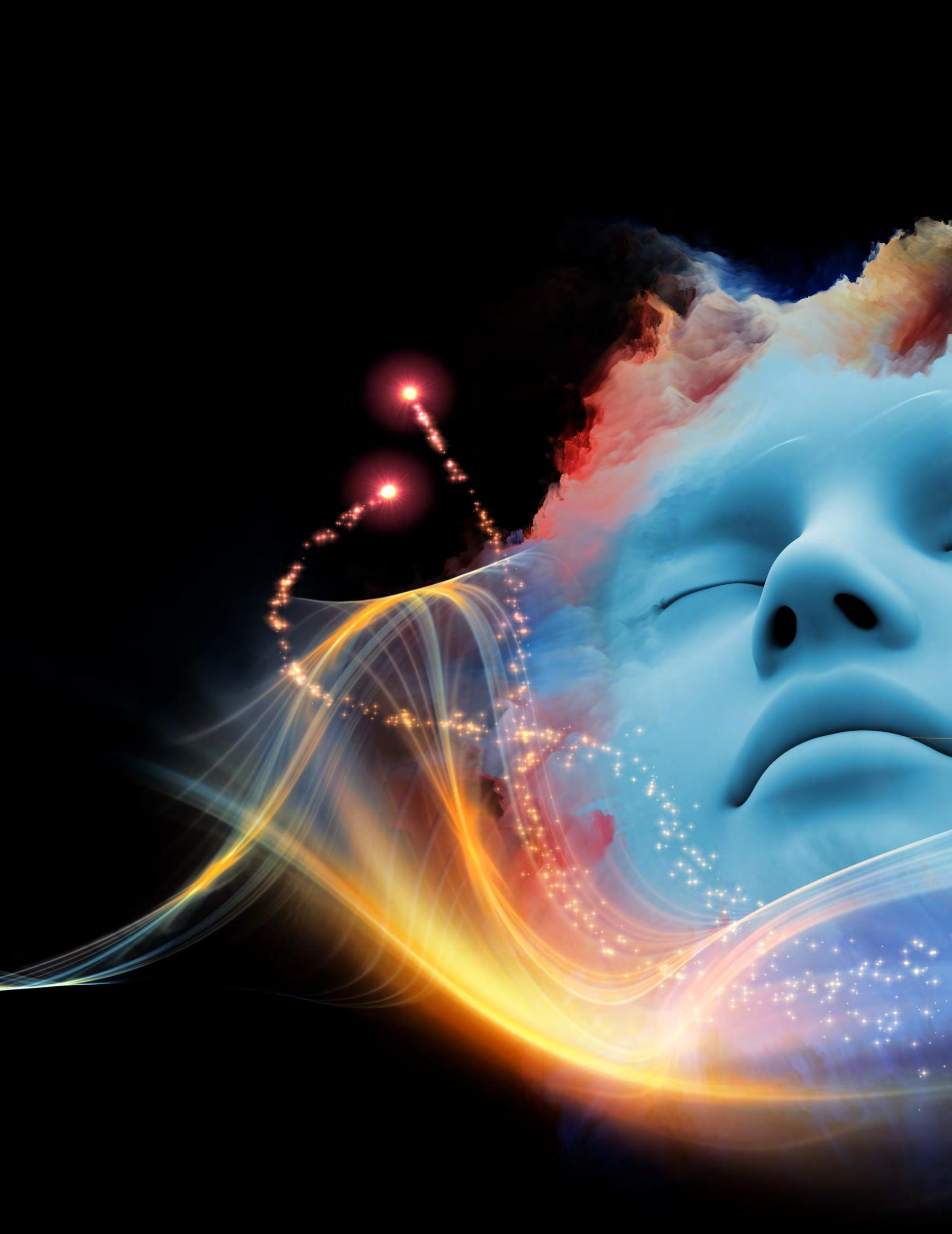
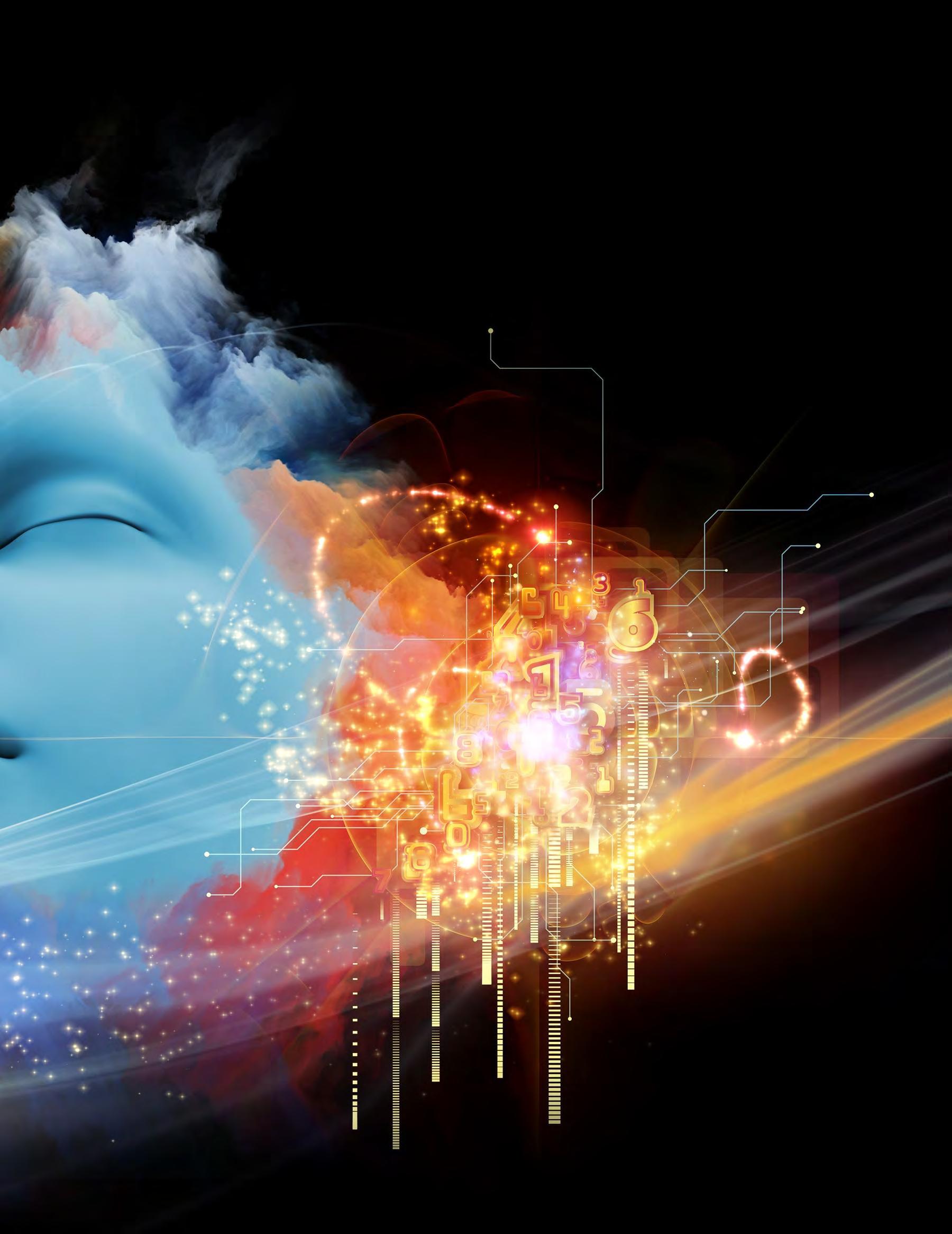
Discover if it's possible to reveal your past lives through Tarot!

Do you want to know if it's really possible to understand your past lives through Tarot? Today, we'll show
you what this oracle can reveal to you, including about the past. After all, this reading brings us the answers we're seeking.
Generally, many people wonder about what happened in other lives.
Is there anyone familiar still on your path? Here, it's very common to think about love, soulmates, and so forth.
For this reason, we prepared a post to talk precisely about past lives in Tarot. And we'll start by discussing self-awareness concerning the oracle.
Déjà-vu: how to see past lives in Tarot?
Let's differentiate the two concepts before understanding whether it's possible to learn about past lives through Tarot. Thus, we understand the dynamic with which these points relate.

From this perspective, we'll start by talking about life after death. According to spiritualism, we reincarnate into another physical body with the intention to learn and evolve. However, we usually have no memories of these past lives. In some cases, this could lead to an imbalance during the journey of evolution.
On the other hand, you can access these memories in regression therapy with the support of
a medium. Or, if you prefer, you can also ask questions with a tarot reader during a reading.
Whatever your choice, check out these tips from the expert Solange, especially about the balance issue. She reflects on "who we were in past lives" in this video.
Let's say you want to know how traumas from a past life can have
reflections in the present time. For instance, let's assume you scheduled an Egyptian Tarot consultation to find out what the oracle will show you.
In this spread, the tarot reader interprets the symbolism to advise you about things that influence your life. By the way, the cards have aspects that bring "clues" about what's in the subconscious. Therefore, this involves both what happened in the past and what is yet to come.
So, to know what to ask about past lives in Tarot, let's learn more about the oracle. Next, tarot reader
Brendan explains how this game's interpretation of the symbolism works.

We've listed 5 tips to help you understand the answers linked to past lives in Tarot. After all, it's essential to pay attention to every detail in this very rich and enlightening symbolism.
While major arcana represent universal laws, minor arcana symbolize everyday situations. For
example, you ask: "Who was I in a past life?". And, in Tarot, the Priestess (or Popess) card appears. But what does this mean?
In general, this card symbolizes mystery, self-confidence, and wisdom. However, the interpretation has everything to do with the context in which the Priestess is inserted in the game.
The suits also have their own meanings in Tarot and cartomancy. To illustrate, we will talk about the main characteristics of each suit.
Pentacles: materiality, money, construction, work, and physical expression. With the Eight of Pentacles, we have intelligence, dexterity, greed, and avarice.

Cups: love, dream, art, relationship, and psychic gifts. A Six of Cups brings to light memories of past love and also your romantic fantasies.
Swords: rationality, search for truth, triumph, logic, and courage. The Ace of Swords denotes an excess of passion, whether love or intense hatred.
Wands: inspiration, creativity, energy, vision, resourcefulness, and growth.
In the case of the Page of Wands, we're talking about loyalty, trust, consistency, etc.
The suits that are revealed during the reading also bring very relevant information. But remember, these cards are within a context, okay?
A tarot reader can use different methods of card spreads. And, since we are talking about past lives in Tarot, we will address the linear spread with 3 cards. From this perspective, the reading will
answer the past, present, and future questions.
The 1 st card speaks precisely of the past. That is, the card represents what led to the current situation. It is probably a person or an event that influences your daily journey.
The 2 nd card addresses the present time, especially those things that are difficult to see. Sometimes, we must change our perspective to understand how things connect.
Finally, the 3 rd card shows the future and what lies ahead. In any case,

deciding whether you will heed the cards' advice is up to you. After all, we have free will even in reincarnation.
To investigate other lives, it is ideal that the tarot reader has psychic mediumship. In other words, the point here is to have a fine-tuned connection with the spiritual world. This way, it will be easier to interpret what the cards reveal.

In fact, one of the characteristics of a psychic medium is the ability to feel the pain of others. Therefore, they
can use their heightened intuition and premonitions to refine their advice.
To wrap up, let's talk about the specifics of this consultation. When having a consultation or a reading with past lives Tarot specialists, you might notice some repetitive patterns, like addictions. Therefore, it's important to analyze the current situation and return in time to gain insights from other lives. Tarot can be a wonderful way to practice ancestral healing.



We grow as individuals as we face challenges and overcome life’s obstacles. This section is dedicated to helping you chart your course

 By Marcia Sirota, MD
By Marcia Sirota, MD
When it comes to behaviors that breed fulfillment for people who
want to be successful in life, there isn't always a clear road map. Instead, many coaches, writers, and experts are vying for your attention, each
with their own set of directions you're supposed to follow to achieve happiness and success.
So many conflicting voices tell you which way to go that it can be extremely confusing for the average person. You never know when you're about to take a wrong turn or get trapped in a pothole.
Rather than lay out the path you ought to take to achieve optimal success, I wanted to simplify the process for you.
I will identify ten behaviors or attitudes that will maximize the possibility of success in any aspect of your life, be it romance, career, finances, creativity, or wellness. By adopting these attitudes, you'll be well on your way to achieving your goals.
HERE ARE THE 10 BEHAVIORS THAT WILL BRING YOU CLOSER TO YOUR DESIRED HAPPINESS AND SUCCESS.
and shortcomings with acceptance, enabling you to see where you went wrong and implement corrective measures. When you forgive yourself instead of beating yourself up, you're empowered to enact positive change in your life.
When you're willing to put in the hard work over some time, you're much more likely to be rewarded with great results. The more you invest your love, energy, and efforts into your relationship, career, creative projects, or wellbeing, the more you'll see the payoff over time.
1: Positive self-regard
Compassion toward yourself allows you to face your mistakes, failures,
When you give of yourself, you feel good; when you feel good, you have more energy to be creative and productive. You create positive connections when you share your energy and ideas with others. A community of like-minded individuals is formed where everyone helps each other out, gives support in difficult times, and participates in the other person's success.
When you take responsibility for your own choices and actions, you become empowered to create the best life possible. Blaming others for your misfortunes removes the power to change from your hands; taking responsibility gives you the power to make different choices to create better outcomes. Being accountable also enables other people to trust, admire and respect you, which only serves to bolster your success.
When you're able to take a step back, see things from a different perspective and try a new approach, success is a lot more likely. If you can let go of the counter-productive attitudes, behaviors, beliefs, expectations, and habits that are holding you back, you're free to create a better life in which happiness is assured.

Many lies are being accepted by the majority of people without question,
but these lies keep us enslaved and oppressed. True power is the ability to question the status quo, to not simply accept at face value the things you're being told; to challenge those in authority, and to form your own opinions based on the facts you've observed. When you take everything with a grain of salt, you create a life that's your very own, not what some random entities or institutions had in mind for you.
We spend too much time worrying about what other people might think of us, and we are afraid that they might judge or reject us if we don't do things the way they want.
If you're trying too hard to meet other people's expectations, you're going to be moving further and further away from what is most meaningful to you. It's only by letting go of your attachment to how other people see you that you're free to be the best version of yourself that you can be.

No one likes to be raked over the coals, and listening to abusive feedback is
entirely unhelpful, but being able to let in constructive criticism is a secret weapon in the struggle to create the best life possible for yourself and your loved ones. When you can hear the valuable feedback people give you and apply it to your efforts, you benefit from the wisdom, experience, and objectivity of those who believe in you and support your success.
The truly successful person isn't immune to problems in life.
They simply choose to see the difficulties they're facing as painful but important life lessons, and they always try to learn from these experiences; they see adversity as an opportunity to learn, grow and do things better in the future. If you want to be happy and successful, you'll have to cultivate the ability to transform the bitter lemons in your life into delicious lemonade.
Too many of us are focused on people-pleasing behaviors, believing that by making others happy, we'll be loved and approved of and will finally feel good about who we are. But, unfortunately, this doesn't work. If you want to be happy and successful, you'll need to love and accept yourself. This doesn't

come from pleasing others; it comes from being authentic and following your heart's desires; it comes from engaging in the world with creativity, compassion, and courage, not through seeking external validation.
Dr. Marcia Sirota is a Torontobased board-certified
psychiatrist specializing in the treatment of trauma and addiction and the founder of the Ruthless Compassion Institute. Her newest book, Back on the Market: The Grown-up Woman's Guide to Great First Dates… and Beyond , is now available on Amazon.com. Sign up for the free monthly wellness newsletter: marciasirotamd.com



 by Kathryn Remati Discover Self-Love Lessons to Help Us Grow...
by Kathryn Remati Discover Self-Love Lessons to Help Us Grow...
Self-love is vital for health and happiness. Love is a powerful, positive energy that is necessary for a healthy balance between mind, body
and spirit. We cannot recognize love in others unless we have it for ourselves. It allows us something genuine to share with the world, and when you believe you are worthy, your life will reflect it.
The concept of self-love should not be confused with narcissism and selfishness. Rather, look to the ancient wisdom of the Buddhists. Self-compassion was emphasized often in Buddhist teachings and can lead us to the steps we need to take towards loving ourselves in a natural, organic and healthy way.
“You, yourself, as much as anybody in the entire universe, deserve your love and affection.”
Buddha
Loving ourselves unconditionally, exactly the same way we love our children and pets, is what we are striving for. Instead, we love ourselves with conditions. We expect to be happy with ourselves only when we get the job we want, or only after getting the house, or losing the weight for example. Then and only then do we feel worthy of our selfcompassion.
Why wait for the outside circumstances to change? Eckhart

Tolle will tell us that if we “Get the inside right, the outside will fall into place.” Inside is where our love waits for us. Here are a few ways to fill our cup of self-love until it overflows, so we may be open to giving and receiving love freely right now.
“Whatever words we utter should be chosen with care.” Buddha
An essential first step is to improve our self-talk and quiet the inner critic that judges and condemns our
actions and feelings. We think we need to be tough on ourselves for motivation but really the opposite is true. Taking care of something we love will gain our attention more easily and we will devote more time than we would on something considered hopeless or unworthy, which is how we tend to think of ourselves.
A great way to begin the process of activating true self-care is to imagine how we speak to a friend who experiences failure or disappointment. We would encourage them and lift their spirits

so they won’t take themselves so seriously. There is always next time. Making friends with ourselves begins when we mentally speak with kindness and a gentle, light-hearted tone. Next time you step on the scales or show up late to work, speak to yourself with kindness and no judgment. Use a term of endearment. Change that critical inner voice to a warm, loving, expression of who we really are. This won’t happen overnight because we have been this way for years.
We must try to love ourselves without exceptions and remember to be
forgiving when negative attributes like anger and envy appear. Love the negative parts and what we think of as faults too. Take advice from writer Elizabeth Gilbert who says, “Accept the glorious mess you are.”

“Don’t believe false doctrines. Don’t follow the way of the world.” Buddha
According to Anita Moorjani’s book, “Dying To Be Me,” choosing love is the healthiest thing we can possibly
do for ourselves. Her theory for optimum health is the difference between letting fear influence our decisions, and coming to those same decisions from a place of love. In great detail, she describes how a near-death experience taught her that the lack of self-love contributed to her illness. She states that illness is caused on an energetic level first, where self-love resides, and then the body follows. She baffled the medical establishment by returning from the brink of death, and by continuing to heal completely within days. Choose love always in all ways.
“Happiness will never come to those who fail to appreciate that which they already have.” Buddha
We have to put an end to comparing ourselves to others. This is the craziest thing we do because we may tell ourselves we are awful when there is always someone worse or better in any situation. The human family is flawed, and the sooner we realize we may never reach our own

tough standards for perfection, the sooner we can truly love ourselves as we are, flaws and all. Everyone is suffering in some way from regrets, hurts, fears, doubts and problems as they present themselves. The only people free from worry are in the cemetery, under the ground.
As long as we are living, we will have some kind of suffering to deal with. The answer is to deal with it. Don’t repress it. Be mindful and surround any obstacles with love. Instead of separating ourselves
from others and feeling less than someone else, see the connection. When we look for similarities, they soon become obvious and love is more likely to appear.

“Better than a thousand hollow words, is one word that brings peace.” Buddha Louise Hay is another believer in the power of loving yourself for healing. In her book, “You Can Heal Your Life”, she recommends
repeating positive phrases like a mantra and writing them down. Leaving affirmations on notes in our living and work spaces will feed our mind consciously and subconsciously, as it becomes a deep truth in time with repetition. She suggests that the affirmation “I Approve of Myself” cannot be repeated or thought too many times in a day. It is such a powerful affirmation along with “I Accept Myself Just as I Am”.
A true Louise Hay test of our selflove growing is if we can look into the mirror and stare into our own eyes and tell ourselves, “I Love You”. Keep trying until you see an amazing person full of love looking back at you.
“Peace comes from within. Do not seek it without.” Buddha

Will another pair of shoes, a new car, or a new job give you lasting peace? Real happiness is a state of being that you can carry with you at all times. We are already complete and enough just as we are. Meditate to dissolve the walls of disdain and open your heart space. Go within by meditating daily to bypass the labels, judgments, and fears and touch that source of true happiness, peace, serenity, and yes, true love for our true selves!
Kathryn Remati is a certified Boston-based meditation teacher, writer, and creator of the popular Tranquil Spectrum meditation App for Apple devices. Kathryn completed a B.A. in Psychology and an M.A. in Organizational Behavior in Australia. For more info and to retain her services for a guided meditation tranquilspectrum.com or follow Tranquil Spectrum on Twitter, Pinterest, Facebook, and Instagram.





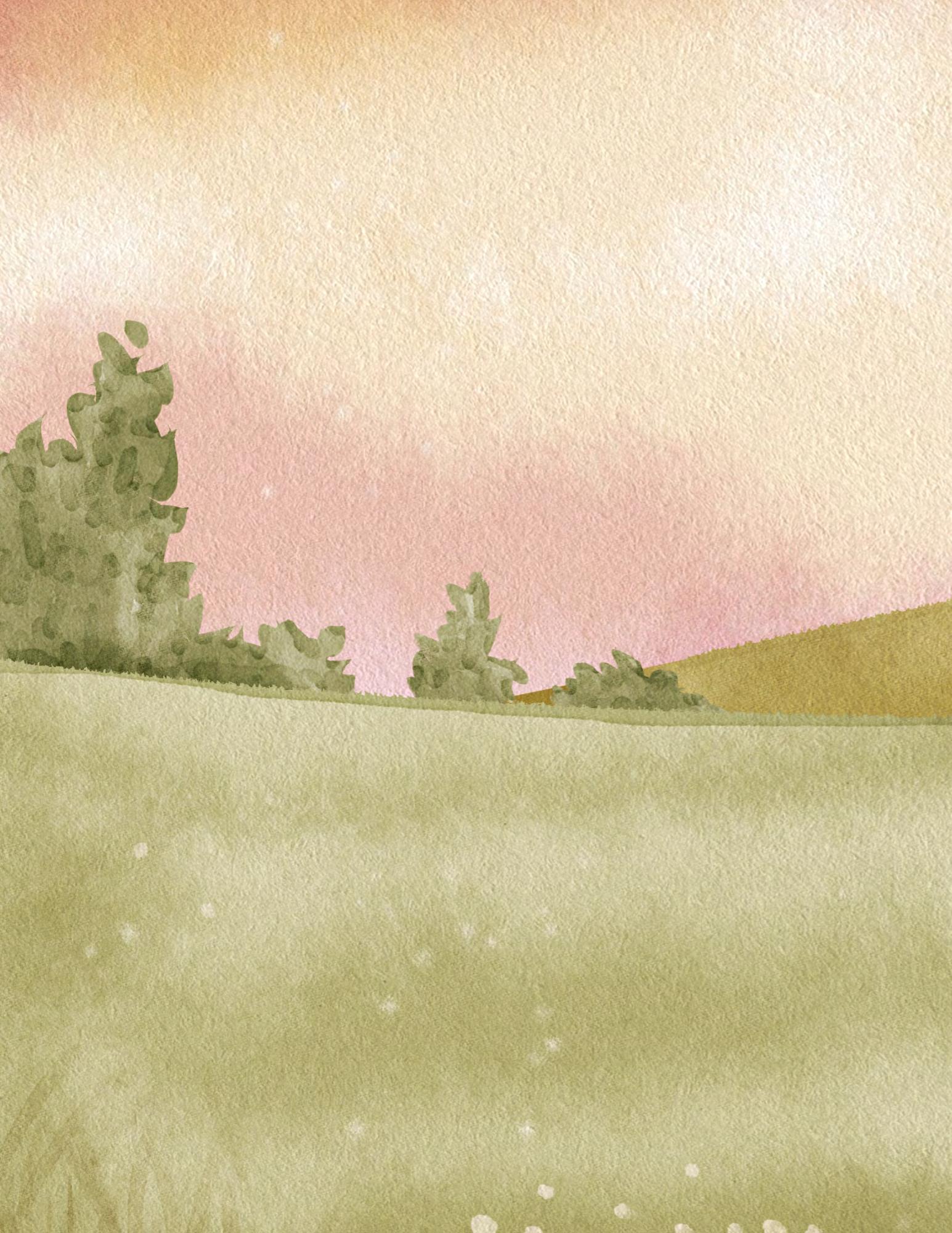
In Wise Little One: Learning to Love and Listen to My Inner Child, Jana Wilson takes us on a deeply personal journey of triumph over childhood trauma and the transformative power of connecting with one’s inner child. This gripping memoir is a testament to the strength of the human spirit and the extraordinary capacity for healing through self-discovery and taking self-responsibility.
A riveting tale of triumph over tragedy, Wise Little One is interlaced with the knowledge Jana learned on her path of discovery. Ultimately, she honors and listens to her Wise Little One and, at long last, is guided to her beloved in the most auspicious way. In the end, readers discover that we are all here in Earth School to learn how to heal from our pasts, extract lessons from our traumas, and value and fall in love with ourselves.
Wise Little One: Learning to Love and Listen to My Inner Child is a compelling memoir that invites readers to embark on a journey of self-discovery, healing, and transformation. Jana Wilson’s story will resonate deeply with anyone who has experienced trauma, offering a guiding light towards reclaiming joy, authenticity, and the capacity to manifest an inspiring life filled with peace, love, and joy.
